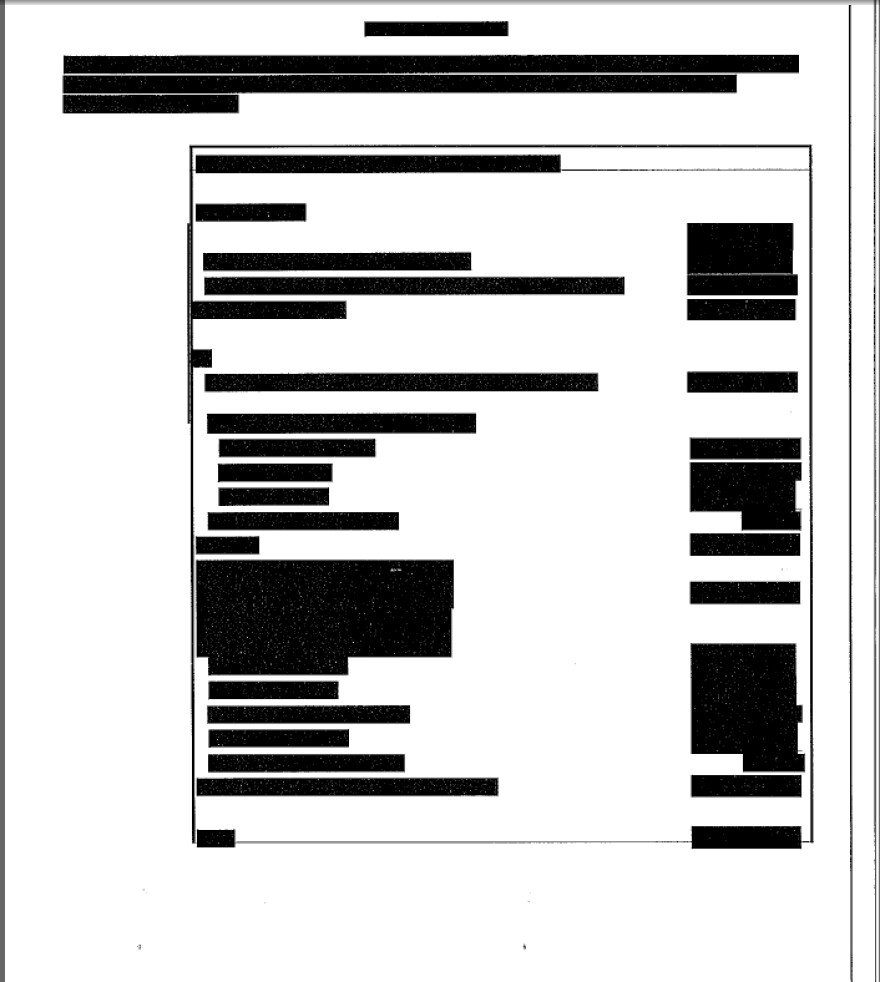The models and data are heavily guarded by the company, and only four people can see them.
The company that got the multimillion-dollar contract to run the call centers for the health care exchange Access Health CT -- called Maximus -- is refusing to release invoices and contracts to show exactly how much they are paid by the state.
WNPR filed a freedom of information request for the information, but Maximus said the invoices and contracts could reveal trade secrets. Maximus values its contract with Connecticut at $15 million over three years, and that's all the company would say.
Last year, WNPR reporter Jeff Cohen asked for the contract between Maximus and the state, as well as invoices, to find out what the state paid for and how much it paid. What he got was heavily redacted information. Cohen filed a complaint, and then went to a formal hearing before Connecticut's Freedom of Information Commission. WNPR argued that the documents are public.
Michael Harrington, an attorney for Maximus, explained at the hearing that competitors can use the price set by his client to figure out just what it is that makes Maximus great -- kind of like the Coca-Cola formula, or the recipe for Kentucky Fried Chicken. He said, "If... one of our competitors learns of how we priced, for example: what is our staff makeup, what is tech we are using ,what is the start-up cost... then they have an advantage that they have not earned."

Harrington, and Maximus vice president David Casey, argued that to arrive at the cost, they relied on 20 years of experience and sophisticated models. They had to understand how people act when buying health care, depending how old they are, and whether or not they have insurance, among other factors.
Casey said the models and data are heavily guarded by the company, and only four people can see them. All the paper copies are stored in a secure room at the company headquarters. Maximus representatives said if other people get a breakdown of how much they're charging Connecticut, they would be able to reverse-engineer what's in those top secret documents.
Maximus representatives said no one has ever challenged the redactions before.
The company's representatives know this because that's what Maximus does to its competitors as well. As an example, Casey referred to a Freedom of Information Act Request they got from Xerox for similar information, and they sent over a heavily-redacted document as well.
Maximus has asked for the same information from other companies to try and gain a competitive edge, Casey said. "We try to reverse-engineer what is given to us," he said, "in order to make assumptions of what they're trying to do, and how they're trying to do it. Then we build our own models in order to say how would we compete against that."
Maximus representatives said no one has ever challenged the redactions before. That's all different in Vermont.
When asked by WNPR, Vermont gave out the full, unredacted contract with Maximus for similar services. Company representatives said they did not approve the release, and weren't happy about it.
An attorney for the Connecticut Freedom of Information Commission will look at the unredacted invoices and contracts next week to decide whether that information should be public or not. The full commission will then vote on her recommendation.




